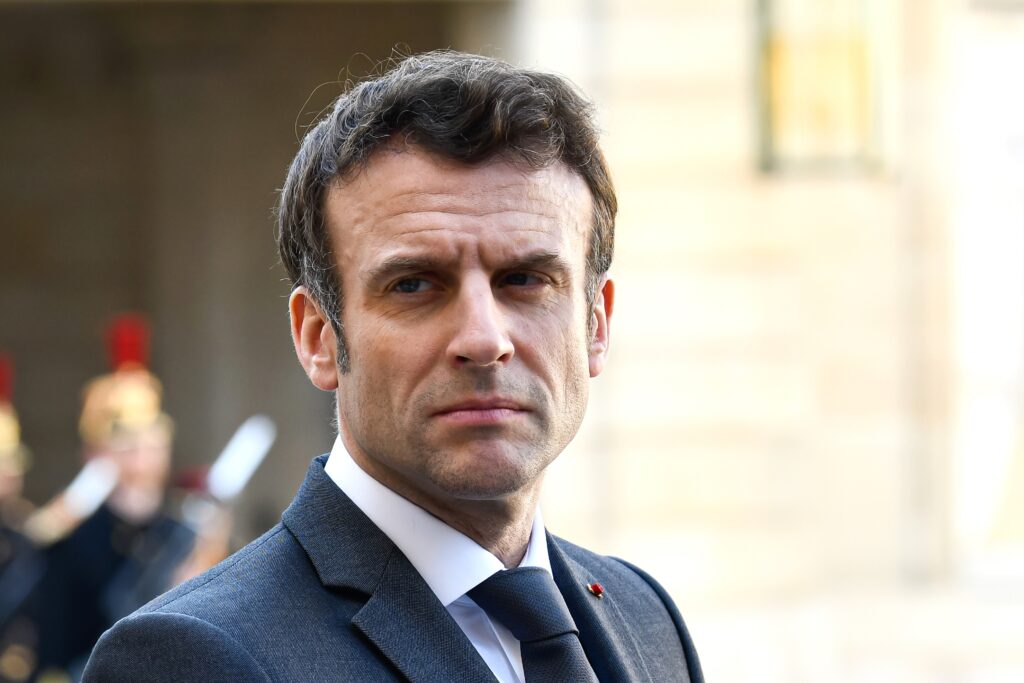The troubles in France and Germany, the economic and political pillars of Europe, are unfolding just as Donald Trump prepares for a return to the White House and amidst geopolitical challenges that demand a stable and united Europe

By Ljilja Vujić
A series of waltzes, partitas, and sonatas, along with compositions titled “Carnival in Parliament,” “Government Collapse,” and “Let’s Rebuild France,” form the repertoire for two pianos “authored” by Emmanuel Macron, Michel Barnier, Marine Le Pen, and Jean-Luc Mélenchon. The French “quartet” has delivered an exceptional and unusual programme that resonates across Europe. While “Let’s Rebuild France” did not make much of an impact, the piano duet of Le Pen and Mélenchon with their “Government Collapse” has shaken the public.
The fall of the government occurred in Paris, one of Europe’s key pillars, after more than 60 years and just three months after the cabinet was formed. This “performance” reverberated widely, not least because of its timing—when Berlin, another economic and political pillar, is presenting a similar “piece,” while Donald Trump waltzes on, military marches echo across the Middle East, and a “spring sonata” is being prepared for Ukraine.
It is unsettling to hear that the EU’s power players appear powerless to resolve issues in their own backyards at a time when geopolitical challenges demand a strong Europe. Instead, we can expect the “malfunction of the locomotive” to drag down a series of other problems, starting with Brussels, where the European Commission, as the executive arm, will be unable to make any significant decisions until stable governments are formed in Paris and Berlin. France cannot hold elections before July. Meanwhile, Chancellor Olaf Scholz has dissolved his coalition government, with elections scheduled for February. A new government in Berlin is expected to take office by June, likely refraining from bold political moves until then.
How Did France End Up in This Situation?
We won’t delve into the deeper causes that led to the collapse of credibility for traditional parties, the Socialists and Republicans, which strengthened the far-right and, as its antithesis, brought Macron to power. Instead, let’s recall the recent events: in early December, the French parliament voted no confidence in Prime Minister Michel Barnier after he proposed reforms to the budget and social security aimed at reducing public debt. This resulted in the fall of the government—which lasted only three months—a development unprecedented since World War II.
Macron had appointed Barnier in September to end months of political uncertainty caused by his decision to dissolve the National Assembly and call snap parliamentary elections in June. These elections left the Assembly divided into three blocs, none of which were strong enough to govern alone. While forming a minority government was far from ideal, it was less desperate than the position Macron would have found himself in had he not dissolved the Assembly and called for elections. This move, described as reckless in public discourse, was both bold and calculated—it thwarted the far-right, which had previously performed remarkably well in the European Parliament elections.
In those elections, Macron’s bloc achieved a historically poor result, securing just 15% of the vote. The far-right party led by Marine Le Pen emerged victorious with around 32%, marking the first time in the history of the Fifth Republic that the far-right climbed so high. In such a short span, France— a country with a history built on liberal principles—experienced several historical milestones.
What is a setback for one is an opportunity for others. Some European member states, long in the shadow of France and Germany, are now seizing the moment. There’s renewed enthusiasm for a potential power shift centred on the Baltic and Nordic countries, as well as Poland and other Eastern European nations, who, with Trump’s support, may play a more prominent role. Polish media have noted that the EU, built on the handshake between Berlin and Paris, no longer has the same strength. Other outlets are also expressing concern about Macron’s position, mentioning the most dreaded word among leaders: resignation.
Doubts are growing about the EU’s ability to handle the Ukrainian war and the challenges posed by a new American administration amidst the crisis of the Berlin-Paris axis.
The extreme left and right united to make Barnier the shortest-serving PM in Fifth Republic history
Sound Familiar?
“We must rebuild France,” said Emmanuel Macron after the government fell. For those who heard his speech when he first became president, these words are all too familiar. Back then, he pledged to create a new France—stronger and more united than ever. He promised to strengthen the European family, with Paris taking on a new driving force.
Today, analysts and “influencers” who once praised the young centrist are now repeatedly saying, almost like a mantra, that “Paris is losing its influence.” Perhaps it could be said that Macron is shooting blanks and that scaring voters with the threat of the far-right no longer yields the desired results. The European Parliament elections have clearly demonstrated how policies in Europe will be shaped going forward. They were a “trend showcase” for the next political season. In this context, the formation of new governments—or coalitions—and the 2027 presidential elections will certainly be worth watching.
That said, there’s no need for exaggeration, especially not apocalyptic predictions. Mechanisms within French legislation are designed to ensure what is now a priority: passing the budget without causing a crisis like the one Greece experienced a few years ago. Instability exists, but not to the extent that it threatens the entire system. For the French, nothing truly derails their institutional continuity.
It’s worth recalling Charles de Gaulle, who, six decades ago, drafted the constitution of the Fifth Republic based on his “republican principles of a monarchical type.” He granted the president authority in defense, foreign policy, ensuring “the regular functioning of public authorities,” and “state continuity,” as well as guaranteeing “national independence, territorial integrity, and treaty adherence.” The president was also given the power to block government decisions and, in exceptional circumstances, enact laws by decree.
This “rule by decree,” under the famous Paragraph 3 of Article 49 of the Constitution, was intended to prevent scenes of deadlock between the government and parliament, which were common during the Fourth Republic. Historically, these special powers have been used on average twice a year—until Macron. At his request, Prime Minister Élisabeth Borne has used these special powers 19 times in 22 months.

The Second Pompidou
What unites the French far-left and far-right? Beyond their thirst for power, it’s their shared antipathy toward Michel Barnier. It will go down in history that the extreme left and extreme right joined forces to make him the shortest-serving prime minister in the history of the Fifth Republic. They toppled his government, something that hasn’t happened since 1962, during the cabinet of Georges Pompidou. This lack of sympathy for the “flash prime minister” aligns with the personal ambitions of far-left leader Jean-Luc Mélenchon, who sees this as his last chance (at over 70 years old) to fulfil his lifelong dream of moving into the Élysée Palace. Meanwhile, far-right leader Marine Le Pen faces a potential legal ruling that could ultimately prevent her from running in the next election.
“Italian Syndrome”
The symptoms displayed by Western governments suggest they might be suffering from “Italian syndrome.” Italians, long accustomed to frequent changes in government, are more shaken by a loss in football than by the replacement of a prime minister. This phenomenon has already spread to the United Kingdom, where the recent spate of Conservative government turnovers (once unimaginable there) has paved the way for Labour’s return to power after a long hiatus. Since Brexit, the UK has already cycled through five prime ministers. Margaret Thatcher and Winston Churchill would hardly believe their eyes.
By calling snap parliamentary elections, Macron managed to push the far-right bloc from the expected first place to third, while elevating his coalition from third to second place. However, the fall of the government signals that Barnier’s successor, François Bayrou—or any future appointee—will face ongoing battles for parliamentary support. The left has already announced that with prime ministers changing every three months, Macron won’t be able to hold on until 2027.
Whoever Gets to Trump First…
The story of the fall of the French government would be incomplete without mentioning Trump—a fact underscored by the unprecedented honours extended to the newly elected but not yet inaugurated American president during the reopening ceremony of Notre-Dame. Seated in the front row, between President Macron and his wife, Trump eclipsed the presence of the still-incumbent First Lady, Jill Biden, and her husband, President Joe Biden. Macron’s joy was unmistakable, as if this weren’t the same Trump from his first term.
Trump was met with similar enthusiasm by Britain’s Prince William, who engaged in a charming handshake and a 40-minute conversation with him. William was simply doing his job—just as Queen Elizabeth II’s sister, Princess Margaret, once charmed Lyndon B. Johnson in a pivotal moment to secure a substantial loan. The other attendees played their roles too, and Notre-Dame, the Gothic jewel, served as the backdrop to this grand occasion. For Macron, it was more than a celebration of the cathedral’s restoration after the fire; it was an opportunity to highlight the renewal of Franco-American relations, which remain the oldest alliance—stretching back to France’s support during the American Civil War and liberation from British colonialism.
Notre-Dame’s reopening showcased renewed Franco-American ties
The “Clintonian”
France’s new prime minister, François Bayrou, is described as a seasoned politician known for his “art of compromise.” A political heavyweight from the southwest, Bayrou calls himself “a man from the countryside, a democrat, a Clintonian, a man of the third way.” Liberals see him as “the embodiment of Macronism,” while Socialists view him as a harbinger of deeper institutional and political crisis.
It’s fair to say he’s not universally liked. His mission is to navigate divisions, pass the budget, and—above all—remain in office longer than his predecessor.